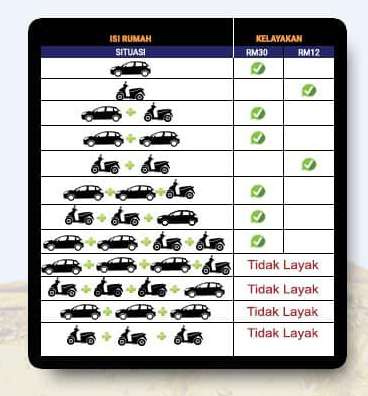Details of the proposed petrol subsidy programme (PSP) by the government has finally surfaced that specifies the recipients and the amount to be allocated per household as well as the floating of RON95 fuel pricing; the same as RON97.
Minister of domestic trade and consumer affairs (KPDNHEP), Datuk Seri Saifuddin Nasution Ismail, announced the specifics of the scheme that’s slated to be implemented in January 2020.
Those eligible will be recipients of the Bantuan Sara Hidup (BSH) and have to be residing in Peninsular Malaysia. Part of the PSP will also see the pricing of RON95 fuel being floated in Peninsular and while Sabah, Sarawak and Labuan aren’t eligible for the subsidies, RON95 will be capped at RM2.08 in those states.
Some of the prerequisites include:
- subsidies reserved only to car/motorcycle owners
- limited to one vehicle per recipient and each vehicle must be registered under the recipient’s name
- the amount is capped at RM30 a month for cars and RM12 a month for motorcycles
- the money will be reimbursed once every four months with the government banking it directly into the recipients registered bank account
- this means each car owner will receive a RM120 lump sum every four months whereas motorcycle owners will get RM48 over the same period
- recipients must be in the BSH database to be eligible for the subsidy allowance
- the household income of the recipient cannot exceed RM4,000 a month
- households can only have a maximum of two cars and two motorcycles to receive the subsidies; anything more and they won’t be eligible

As for the vehicles themselves, there some select criteria to qualify for the PSP that cover displacement and the vehicle age:
Cars
- 1,600cc or less
- above 1,600cc but must be 10 years old or above
Motorcycles
- 150cc or less
- above 150cc but must be seven years old or above
According to Saifuddin, approximately 2.8 million people will benefit from the PSP. More importantly however, it will cost the government roughly RM65.4 million monthly as opposed to the current RM133 million it spends on weekly fuel subsidies.
This is significantly lower than the average of RM133 million it currently spends weekly on fuel subsidies.





